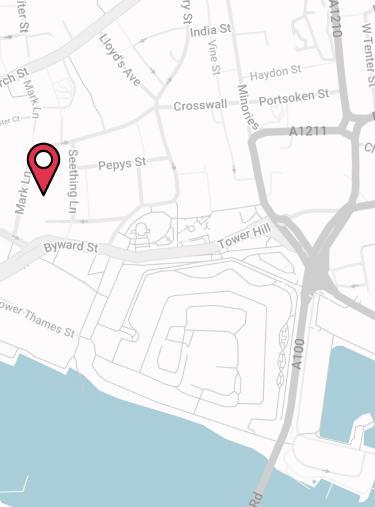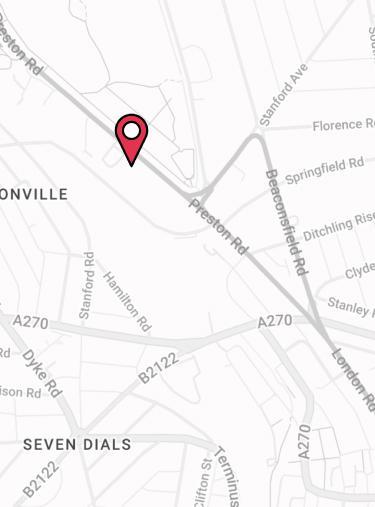Serious illness can strike without warning, turning life upside down for your employees and their families. As an employer, you can make a real difference by offering Group Critical Illness Insurance—giving your team the financial support they need when it matters most.
But what exactly is it, how does it work, and what will it cost? Our guide below covers the key details to help you understand this benefit and what it has to offer.
What Is Group Critical Illness?
Group Critical Illness Cover will pay out a tax-free lump sum of cash should an employee suffer a serious illness whilst working for your business. The three most common conditions covered are:
- Cancer
- Heart Attack
- Stroke.
In addition to the core insurance cover, Group Critical Illness policies come with additional support services such as an employee assistance programme and best doctors service.
Why Is Group Critical Illness Insurance Important?
Insurance provides peace of mind, reducing stress about unforeseen circumstances. In our 2024 Employee Benefits Survey, one in five employees said they wanted protection for themselves and their loved ones.
Working in tandem with your sick pay policy, Group Critical Illness shows your commitment to employee wellbeing, showing them they have support if they fall ill or get injured. This peace of mind is a powerful motivator, helping your team to stay committed and motivated.
5 Minute Video Guide To Group Critical Illness Cover In The UK
Don’t have enough time to read our guide? Watch as Drewberry specialist Nick Nelms gives the lowdown on Group Critical Illness Cover in the below short video 👇
How Does Group Critical Illness Work?
Group Critical Illness policies are paid for by you, the employer. Once your plan is set up, you just need to pay your premiums to keep your cover in place. If an employee needs to claim, they’ll go directly to your scheme provider.
How Much Cover Does It Provide?
The payout is typically between one and five times an employee’s annual salary and can help with everyday expenses as well lifestyle changes that might occur from illness or injury.
Which Illnesses Are Covered?
As part of their standard insurance, providers cover your employees for around 12 serious conditions. The most common are:
- Cancer
- Heart attacks
- Strokes
- Kidney failure
- Motor neurone disease
- Parkinson’s disease
- Alzheimer’s disease
- Major organ transplant
- Surgery to fit coronary artery bypass grafts
- Creutzfeldt-Jakob Disease (CJD).
As well as the cancer cover and other core illnesses, you can choose to cover your employees for an additional 20-25 or so conditions for an extra premium. These include:
- Aplastic anaemia
- Bacterial meningitis
- Benign brain tumour
- Permanent and irreversible blindness / deafness
- Cardiomyopathy
- Paralysis
- Loss of limbs.
The conditions a Group Critical Illness policy covers and their definitions will vary from insurer to insurer. While this information will be in your policy documents, it’s often shrouded in medical and insurance jargon, which is why it’s a good idea to work with a specialist adviser (like us at Drewberry) who can decode the lingo and find you the right policy.
Adding Total Permanent Disability
Total Permanent Disability is another additional option for company policies. It covers employees who are unable to work in their specific role should they become totally and permanently disabled.
Why Offer Group Critical Illness To Your Employees?
Everyone faces a very real risk of suffering critical illness during their working lives, and the statistics are sobering:
- Cancer Research UK found that over 1,000 new cancer cases are diagnosed every day
- According to the British Heart Foundation (BHF), 270 people a day are hospitalised for heart attacks in the UK
- BHF also found that strokes claim 100,000 victims per year, equivalent to one stroke every five minutes.
Offering a Group Critical Illness policy sends a clear signal that you value your employees, and are there to support them when they need it most.
Benefits For Employers
By offering this protection, your business can benefit in several ways:
Competitive Advantage
Only 9% of employees who responded to our 2024 Workplace Satisfaction Survey receive Critical Illness as a benefit from their employer. That’s a great opportunity to get ahead of the competition and boost your employer brand.
Tax Benefits
Group Critical Illness Insurance is usually tax-deductible as a business expense. Your employees also benefit from a tax-free payout if they need to make a claim.
Tailored Coverage
You can often tailor group policies to meet the specific needs of your workforce, meaning your coverage is relevant to your team. Policies also tend to come with extra perks employees can use when they’re not making a claim, such as Employee Assistance Programmes, Wellness Apps, and Virtual GPs.
Cost-Effective
Group insurance usually comes at a lower premium compared to individual policies due to the risk being spread across a larger number of people.
Plus, a solid employee benefits package makes you attractive to new employees, improves employee morale, and helps to combat absenteeism from sickness.
Benefits For Employees
When it comes to protection, the benefits for employees speak for themselves:
Financial Security
Employees receive a lump-sum payment upon diagnosis of a covered critical illness, which they can use however they like. The cash can help cover medical expenses, living costs, and other financial obligations.
Peace Of Mind
Knowing they have financial support if diagnosed with a serious illness can reduce stress and allow employees to focus on recovery.
No Medical Underwriting
Group plans typically do not require medical underwriting, making it easier for employees with pre-existing conditions to obtain coverage.
How Much Does Group Critical Illness Insurance Cost?
This is a tricky one to answer. Every business is unique, so it’s difficult to determine the cost of Group Critical Illness Cover without knowing your exact needs. But as a general guide, your Group Critical premiums will depend on:
- The average age of your workforce (older employees = higher premiums)
- The number of insured employees
- The level of cover you opt for (i.e. the size of the payout / multiples of salaries)
- Whether you add coverage for additional illnesses.
As a guide, we’ve pulled together quotes for two different businesses in the table below:
How Does HMRC Tax Group Critical Illness?
For employers, Group Critical Illness Insurance is usually an allowable business expense against your corporation tax bill. Meanwhile, employees usually receive the payout free from tax.
However, it’s important to know that Group Critical Illness is a taxable Benefit In Kind (P11D), meaning your employees will have to pay additional tax on the premiums you pay on their behalf.
Usually, HMRC deducts the cost of premiums you’re paying from workers’ personal allowances. Having a lower personal allowance means income tax kicks in earlier on employees’ wages, and you’ll also have to pay employer’s National Insurance contributions on the premiums.
Who Are The Best UK Group Critical Illness Insurance Providers In 2026?
As an independent insurance broker, we work with every leading UK insurer, understanding the nuances of what they offer. We’re not bound to a single provider, so we’re free to search the entire market to find the best fit for your business and employees.
The biggest Group Critical Illness Cover providers in the UK are:
- Aviva
- Canada Life
- Legal & General
- Unum.
The Best Additional Benefits
On top of the core insurance offering, insurers often provide additional perks that employees can use when they’re not claiming. The most popular often include:
- Employee Assistance Programmes and wellbeing services
- Digital GP service
- Second medical opinion service / best doctors (offering access to leading global specialists if an employee becomes ill and wants a second opinion on such things as treatment or cancer diagnoses)
- Mental health emotional support services
- Physiotherapy
- Medical helplines staffed by trained nurses for
- Legal advice.
How Does Employee Critical Illness Insurance Fit Into Your Benefits Package?
While Group Critical Illness Insurance is rarely the first benefit companies introduce, 20% of employees want employers to offer this kind of protection as part of their benefits package.
Group Critical Illness Cover forms part of a core set of employee benefits, which includes:
Group Critical Illness Cover Vs Income Protection
While they exist for a similar purpose, Group Critical Illness plans pay out a cash lump sum benefit if an employee falls ill, while Group Income Protection pays a proportion of an employee’s wages every month for a set period.
Also, employee Critical Illness Insurance only covers a few very serious conditions, while Income Protection covers staff for anything that medically prevents them working.
Ultimately, the most common claims on Group Income Protection are for issues that Critical Illness doesn’t cover, including mental health issues and musculoskeletal issues.
What's the Difference Between Critical Illness And Terminal Illness Cover?
Company Critical Illness Cover pays out a tax free lump sum benefit if you’re diagnosed with one of the critical medical conditions listed on the policy.
Your condition doesn’t have to be life-limiting to make a claim. You could claim for a cancer diagnosis you later recover from with treatment, for example.
Terminal Illness Cover, on the other hand, is typically included for free with Life Insurance policies – it sees the policy pay out early if a doctor says you have less than 12 months to live. Terminal Illness cover typically isn’t included with Group Life Policies.
Does Group Critical Illness Insurance Include Childrens Cover?
A Group Critical Illness policy typically covers children of insured employees for free up until the age of 18. They’ll have cover for a set of specific child-related conditions. You can also include employees’ spouses / civil partners, but this will be at an additional cost.
Is It Voluntary Or Company Paid Insurance?
We’re often asked whether a company can introduce serious illness cover on a voluntary basis, with only employees who opt in paying premiums out of their own pockets. However, due to potential adverse risk, the policy must be company-paid – covering all employees or a clearly defined category of employee.
Find Group Critical Illness Insurance Quotes And Get Specialist Advice
Setting up and maintaining your employee benefits requires a decent bit of admin, so it quickly becomes time consuming. We do the heavy lifting for you, giving you more time to focus on what matters.
We live and breathe employee benefits, doing this day in-day out for businesses just like yours. Looking at the big picture, we get to know your unique workforce and benchmark your offering against competitors.
Best of all? We have access to the most competitive rates on the market for group insurance products. So give us a call on 02084327333 or email help@drewberry.co.uk to get started.
Why Speak to Us?
Employee benefits can be a headache. But our specialists do this day-in, day-out, offering first class service when you need it most. Here’s why you should talk to us:
- Award-winning independent employee benefits consultants, working with leading UK insurers and benefit providers
- Assigned specialist on hand to help – every step of the way
- 4074 and growing independent client reviews rating us at 4.92 / 5
- Authorised and regulated by the Financial Conduct Authority. Find us on the financial services register
- Claims support when you need it most.










